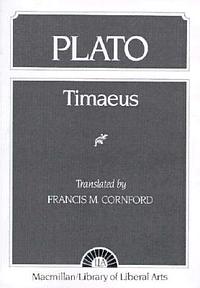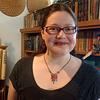Take a photo of a barcode or cover
informative
slow-paced
Plato has a really weird origin of the universe
This book is masterpiece of philosophy and most of the reviews are about Atlantis. I mean who cares about Atlantis when you get to read about Plato's vision of creation of Cosmos. The ideas of Demiourgos, Time as the "movable" eternity (I read dialogue in Serbian translation and am not sure if the term movable is right). Matter as the third being that is capable of accepting any form.
It is also worth mentioning the fact that Timaeus was in fact the most influential Plato's dialogue until only couple of hundred years ago. In Raphaelo Santi's painting "The school of Athens" Aristotle is holding in his hand "Metaphysics" and Plato is carrying Timaeus.
It is also worth mentioning the fact that Timaeus was in fact the most influential Plato's dialogue until only couple of hundred years ago. In Raphaelo Santi's painting "The school of Athens" Aristotle is holding in his hand "Metaphysics" and Plato is carrying Timaeus.
*read for school.
This was an interesting read, to be sure. It was complicated and tough to get through, yet rewarding in a sense. I had to work hard to understand what I was reading and the many concepts it held, but I really enjoyed that process. But boy was everything about this a bit whacky.
Do I love reading Plato? No. Will I read more of his work? Yes.
This was an interesting read, to be sure. It was complicated and tough to get through, yet rewarding in a sense. I had to work hard to understand what I was reading and the many concepts it held, but I really enjoyed that process. But boy was everything about this a bit whacky.
Do I love reading Plato? No. Will I read more of his work? Yes.
This dialogue is definitely indicative of the nature of Plato's late works; it's very technical, rationalistic and autistic. The poetry of the erotic dialogues like Phaedrus and Symposium is gone. As is the romantic search for truth above all else like in trial and apology dialogues. Plato's clearly become disinterested in stagecraft at his old age. He tries the dialogue style for the first few pages to then just give up and hand Timaeus a long essay to serve as the rest of the book. I can certainly see how the Nietzschean critique of Plato's rationalism applies here.
Despite that, I think this yoke has some of Plato's most profound formulations. Firstly the influence of the Pythagoreans is particularly present here, even in the first three words of the text; "One, two, three-". The line sets the tone for the discussion where mathematics and geometry is at the core of the discussion. Plato is famous for including subtle hints in the first words of his dialogues, such as in the Republic where the first three words are "I went down" echoing the allegory of the cave.
But anyway as I said mathematics is at the core of Plato's cosmology here. In strong contrast to Pagan Hellenic origin myths like Hesiod's. Plato fundamentally privileges Being, Order and Harmony over Becoming, Chaos and Disunity. He sides with Parmenides over Heraclitus, Apollo over Dionysus. This at least in his metaphysics of the Heavenly Bodies and the Demiurge. He posits a sort of monistic cosmos with the Nous as the generating energy emanating through existence.
The emphasis on intelligence and number as defining the superstructure of this world is certainly picked up from the Pythagoreans, though it seems Plato leans more toward their geometry than their arithmetic. I like how the coherence and pre-destined nature of the universe in astrology, number, etc applies to society and the individual also. As we all posses the capacity for noesis. Through this we must all strive for inner and outer taxis and harmony.
This ties into Plato's biopolitics here. So just as the the microcosm is solely beholden to the macrocosm, the individual is always inherently a part of the wider world-soul. In this sense the individual can never be formally isolated from the community, from the cosmos. We all have our divine roles in the organic structure of reality. This translates in real terms to the tripartite caste system which Socrates mentions picking up from Egypt in the dialogue. The priest, warrior and merchant castes are the three components of every Indo-European society.
Despite that, I think this yoke has some of Plato's most profound formulations. Firstly the influence of the Pythagoreans is particularly present here, even in the first three words of the text; "One, two, three-". The line sets the tone for the discussion where mathematics and geometry is at the core of the discussion. Plato is famous for including subtle hints in the first words of his dialogues, such as in the Republic where the first three words are "I went down" echoing the allegory of the cave.
But anyway as I said mathematics is at the core of Plato's cosmology here. In strong contrast to Pagan Hellenic origin myths like Hesiod's. Plato fundamentally privileges Being, Order and Harmony over Becoming, Chaos and Disunity. He sides with Parmenides over Heraclitus, Apollo over Dionysus. This at least in his metaphysics of the Heavenly Bodies and the Demiurge. He posits a sort of monistic cosmos with the Nous as the generating energy emanating through existence.
The emphasis on intelligence and number as defining the superstructure of this world is certainly picked up from the Pythagoreans, though it seems Plato leans more toward their geometry than their arithmetic. I like how the coherence and pre-destined nature of the universe in astrology, number, etc applies to society and the individual also. As we all posses the capacity for noesis. Through this we must all strive for inner and outer taxis and harmony.
This ties into Plato's biopolitics here. So just as the the microcosm is solely beholden to the macrocosm, the individual is always inherently a part of the wider world-soul. In this sense the individual can never be formally isolated from the community, from the cosmos. We all have our divine roles in the organic structure of reality. This translates in real terms to the tripartite caste system which Socrates mentions picking up from Egypt in the dialogue. The priest, warrior and merchant castes are the three components of every Indo-European society.
Another Plato book I read for a Philosophy class. After Intro to Philosophy I was invited to be in Great Books, which is an invite only discussion based Philosophy class. This book, which has the first references to Atlantis in it, is more or less about science. Explaining the way Plato/ Socrates uses logic to figure out how the universe IS. To Plato the world can be understood by reason and not always by senses. Some ideas are down right silly to modern readers, some are surprisingly insightful. My favorite is that the four elements (fire, earth, air and water) are made up of different triangles, and those triangles combine in different patterns to make up the basis of everyday matter. The "everything is made of triangles" hypothesis seems silly, but part of his writings rings of an atomic understanding or grasping.


